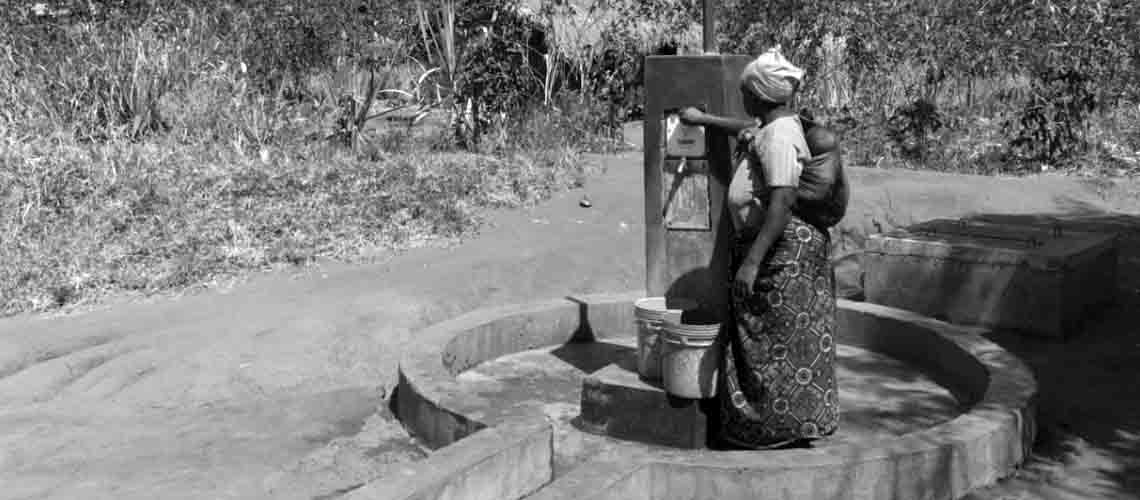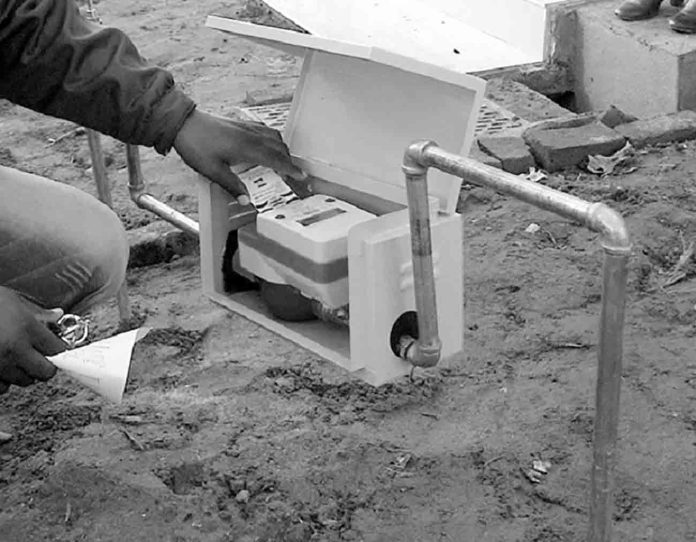Tanzania Prepaid Water Meters – A Look into the Technology and Sustainability
Water access is a crucial concern in many developing nations, and continually delivering it to thousands of villages in rural areas is particularly difficult without enough funds to make it happen.
Fortunately, prepaid water meters technology could help improve water access by cutting down lost revenue. The technology itself is user-friendly and straightforward. There are many global manufacturers, including eWaterservices, Nairobi-based Maji Milele (through SUSTEQ), Grundfos, and Lorentz, which help improve the technology.
How Prepaid Water Meters It Works
Water consumers obtain an NFC-enabled water tag with credits added to it via mobile money. They tap one of their village’s prepaid water dispensers with the tag, and water flows out of the tap immediately. The money spent by customers is used to pay for services like maintenance of the dispensers and numerous other maintenance and operational expenses of a regular village water scheme. In addition, the prepaid water meters are inherently fair, transparent, and efficient – customers know precisely how much they are paying and the quantity of water they are receiving. The village can also track where the money goes.
However, while prepaid water meters look great on paper, the most important thing is for them to be effective in the real world. Field experience from Tanzania and other countries offers insight into the value proposition of prepaid water meters.
Tanzania Prepaid Water Meters Pilot Project

A pilot project assisted by the Global Partnership for Results-Based Approaches GPRBA) and the World Bank’s Global Water Security and Sanitation Partnership (GWSP) seeks to expand the use and prevalence of solar-powered water pumps and prepaid water meters in existing water schemes powered by diesel generators. The programme includes a four-year service agreement to ensure sustainability. The financial breakdown is as follows:
- The Dutch government and SIDA, through the World Bank’s Global Partnership for Results-Based Approaches (GPRBA), funds 60% of the project through a grant
- TIB Development Bank funds the remaining 40% through a four-year loan to participating communities.
It is hoped that the rural communities can offset 40% of the investment without the need to increase the current water price. While the project is still being implemented, there are signs that the gamble may already be yielding positive results. Revenue collection with prepaid water meters in the rural villages of Tanzania has increased anywhere from 50 percent t0 400 percent, which is quite impressive. With economies of scale and sustainable approaches, it can advance blended finance. Additionally, it is hoped that the project would reduce carbon dioxide emissions and massive life-cycle cost savings.
Evolution of the Concept of Tanzania Prepaid Water Meters
The pilot project is not Tanzania’s last attempt at installing prepaid water meters. In fact, the pilot project has led to an increased interest in the technology from the Rural Water Supply and Sanitation Agency (RUWASA) and other decision-makers and rural communities.
In addition, RUWASA recently charged the World Bank to carry out a scoping study to chart the best path forward on a project that aims to install as many as 35,000 mobile-money-enabled prepaid water meters. Initial investigations indicate that prepaid water meters may have a payback time of less than 24 months. The main objective is to extend the four-year loan and 60% grant from the pilot project to a 15-year loan with a 0% grant. The financial modelling in the study shows that this can be achieved with economies of scale, where hundreds of villages would voluntarily participate. The prepaid water meters would play a vital part in such a project because they would ensure payments for water are made and permit the remote surveillance of revenue collection and the whole water pumping operation.
Tanzania is not alone in trying to find a way to increase rural water access in a financially sound way. However, the installation of prepaid water meters shows other developing nations that there are innovative and sustainable solutions to water access gaps and that the sooner stakeholders work to find and implement them, the better off communities and individuals will be in the short and long term. As these methods evolve, we’ll keep analyzing them.
For more articles related to Technology in Tanzania, click here!


































